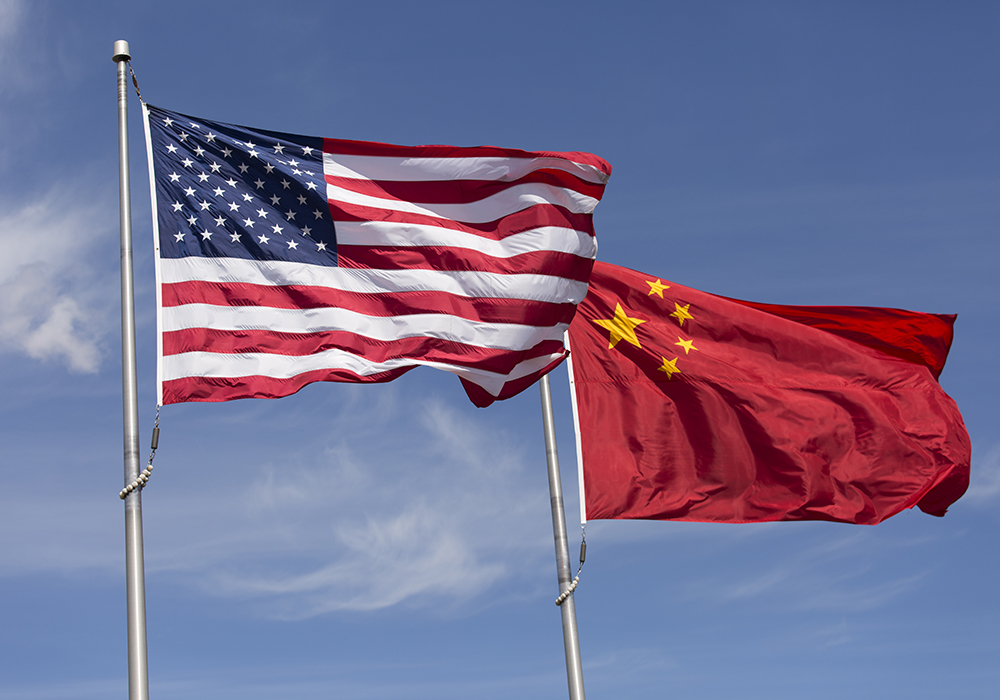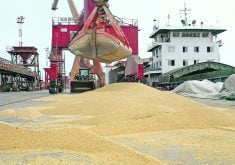The agricultural trade relationship between the United States and China is fragile, according to the U.S. Trade Representative.
“(It is) extremely difficult and getting more difficult,” Katherine Tai told U.S. agriculture secretary Tom Vilsack in a sit-down interview at the USDA’s 98th Annual Agricultural Outlook Forum.
Former U.S. president Donald Trump signed the Phase One agreement with China two years ago, in which China pledged to buy an additional US$200 billion of U.S. exports over 2017 levels by Dec. 31, 2021.
Read Also

Manitoba community projects get support from HyLife
HyLife Fun Days 2025 donated $35,000 each to recreation and housing projects in Killarney, Steinach and Neepawa earlier this fall.
In the end, China didn’t buy any additional U.S. products due to the global pandemic and a recession, according to an analysis by the Peterson Institute for International Economics.
China did manage to exceed 2017 levels of trade on agriculture products but still only achieved 83 percent of its total purchase commitment of $40.4 billion.
Tai said she began engaging with China in October 2021 about how the country is going to “make good” on its Phase One obligations.
“These have not been easy conversations,” she said.
“In fact, they have gotten more difficult over time.”
She is also pressing the Chinese about the impact of their domestic policies on U.S. products.
“We very much would like for China to play by our rules,” said Tai.
She also wants Canada to abide by the rules of the United States-Mexico-Canada Agreement.
On Jan. 24, a USMCA dispute panel ruled that certain practices of the Canadian government with respect to the country’s dairy industry violate Canada’s commitments under the deal.
“That is a really important victory for us to have in hand,” said Tai.
“We need to continue to push our Canadian partners to make good on the promises based on the findings that we now have from a dispute panel, and we will do that.”
She wants to see clear regulatory signals from Mexico surrounding the regulation of genetically modified crops.
Vilsack asked her about the USTR’s initiatives in the Indo-Pacific region.
“These are countries that are strategically important,” she said.
Tai noted that trade agreements are not the only tools that can be used to improve trade. The U.S. has had success using trade and investment framework agreements in that region of the world.
“Those are foundational agreements that are there to enhance collaboration and co-operation, and we often forget about them,” she said.
Vilsack asked Tai about her thoughts on trade with Africa.
“It’s an area and a continent that we, from a trading perspective in agriculture, have not been as aggressive and as proactive as we have been in Asia,” he said.
Tai agreed, noting that the U.S. has deep historical ties on the continent.
“The opportunities and the bonds between us really are asking for more focus and a concerted effort here,” she said.
However, she emphasized that whatever the U.S. does in that market has to reinforce rather than impede Africa’s attempts to foster more integrated trade among African nations and must also reinforce development efforts.
Vilsack also asked her if she thinks the U.S. pays enough attention to South America.
“We need to pay attention to South America,” said Tai.
“These are our neighbours. They are our family.”
Contact sean.pratt@producer.com
















